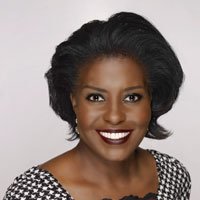 By Gigi DeVault (Munich)
By Gigi DeVault (Munich)
When the Ronald Reagan Presidential Library in Simi Valley opened in 1991, it marked the first time that five United States presidents had gathered in one place. This prestigious gathering of ribbon-cutters—Nixon, Ford, Carter, Reagan, and Bush Sr. and their respective First Ladies—at the largest Presidential library in the nation, could be attributed to a number variables. Three factors come immediately to mind: Longer lives due to improved health care, Presidential privilege, and the marketing acumen of Rachel Minard.
Fresh out of Northeastern University in Boston, from which she graduated with honors in journalism and philosophy, Minard got her start in marketing with the launch of the library. She has, since that time, focused on launches of a different sort.
Skip ahead one year, from Simi Valley to London. Pareto Partners, a currency overlay investment management firm had opened its doors about the same time as those of the most recent Presidential library. A young woman named Rachel Minard was hired as assistant director of marketing and client services at Pareto, helping the firm grow to one of the most highly respected currency overlay firms in the world.
Minard’s is both an “opener” and a “closer.” Early in her career, Minard was hired to be an opener. First she opened her own marketing firm, and then opened a Presidential Library. Her next decade would be spent securing new assets for her firms, raising well over $9 billion in her career. In a new position created for her, Partner and Managing Director, she was hired in May by the hedge fund-of-funds firm Optima Fund Management to open and oversee their San Francisco office as well as build the firm’s global institutional business from the bottom up. She has 18 years experience building businesses and raising assets globally for investment management companies. Minard knows how to close business, too. For the last eight years, Minard has been engaged in building fund of hedge fund firms into global institutional powerhouses.

 By Melissa J. Anderson (New York City)
By Melissa J. Anderson (New York City) By Melissa J. Anderson (New York City)
By Melissa J. Anderson (New York City)
 By Melissa J. Anderson (New York City)
By Melissa J. Anderson (New York City)
 By Andrea Newell (Grand Rapids, Michigan)
By Andrea Newell (Grand Rapids, Michigan) By Melissa J. Anderson (New York City)
By Melissa J. Anderson (New York City) By Tina Vasquez (Los Angeles)
By Tina Vasquez (Los Angeles) By Elizabeth Harrin (London)
By Elizabeth Harrin (London)